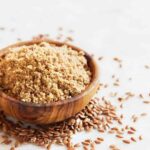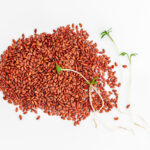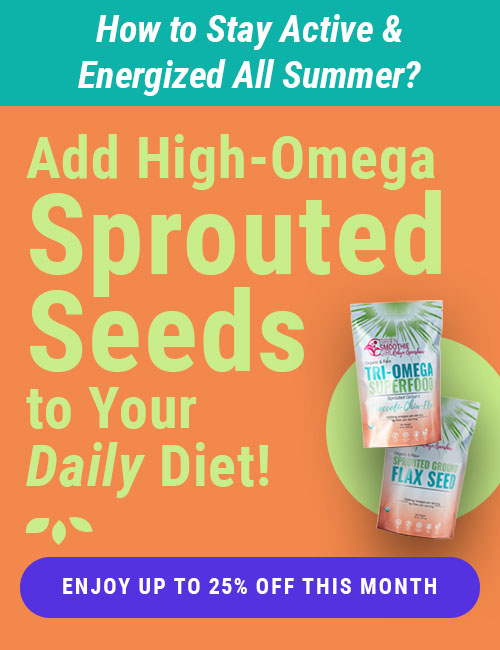Nutrition for pregnant moms, babies, toddlers: part 3 of 5
Today’s topic: WHAT DO I WEAN MY BABY ONTO?
So, you can’t feed your baby nothing but breast milk, and then goat milk (or yogurt/kefir) forever. Now you know why I highly encourage you to breastfeed as exclusively as you can, for 18 months.
But when you do begin to wean your baby, avoid all the boxed ‘cereals’ and the jars of baby food. I never fed my last three any of those things, not even once. Not one of them drank any ‘formula.’
Babies sensitive to dairy formulas are often given soy formulas, which is deeply troubling to me. Soy is estrogenic, and it is a very well-known endocrine disruptor. It is very possibly my least-favorite option to feed an infant. Plus, over 85% of America’s soy crops are genetically modified. Some evidence links it to degenerative gut conditions. Obviously we don’t want to start your baby down that path, shortly after birth!
I started weaning my babies onto raw, primarily non-sweet plant foods. More greens and vegetables than fruits.
If you start there, when your baby is hungry (beginning to outgrow the milk-only diet, and getting interested in table foods, wanting what you eat), you’re setting her tastes, which truly last a lifetime.
What you feed her NOW will be things she always gravitates towards. Programming at this very young age is very powerful. (Even the things you ate while your baby was developing in the womb, are often foods the baby later craves.)
So you have the opportunity to craft your child’s tastes. Make it easy on yourself, instead of choosing years of tantrums if you don’t feed her Skittles at every meal. That’s what you’re choosing for yourself, if you start feeding your little one sugar! A guaranteed future of refined-foods addiction.
Mash avocado. Make a simple green smoothie with only two ingredients. Chard and a small amount of banana, with water. Spinach, and an apple, and water. Blend it in your turbo blender. (Blendtec is the best one, Vitamix is the second-best one.)
MAKE IT ORGANIC. Your body doesn’t do well metabolizing pesticides. Your baby’s body is even more sensitive—plus, his body is just tiny. It should be developing, not struggling against organophosphates, or heavy metals.
Don’t cook the veggies to puree them in the blender. Blend RAW carrots and just enough water to blend. Cooking makes it soft, yes, but also kills vitamins, minerals, and enzymes. Remember your baby isn’t producing digestive enzymes yet anyway. So give them to her in the form of raw plant food!
Don’t feed your baby raw honey until after 12 months, to be sure that her body is equipped to deal with the very mild pathogens occasionally found in that food.
Don’t sweeten the green smoothies with any concentrated sweetener. The only reason YOU think they have to be sweet is that you weren’t lucky enough to have a mother systematically weaning you onto wonderful living, whole, raw plant foods. Your baby has no addiction to sugar. Yet. Your baby has no emotional attachment to eating. Yet. Add nothing to sweeten but a bit of banana, or dates.
Add only one food a day, or each few days, to carefully observe any reactions in your baby, any potential food sensitivities. If you noticed when you were nursing, that your baby reacted to your breast milk when you ate certain foods, there is a higher likelihood that your baby is going to be sensitive to some foods when you feed them to her directly.
A mashed banana is a wonderful food for a baby. I think a banana and an avocado mashed for a baby is a FABULOUS baby or toddler meal. Perfect fats for brain health. Great potassium and many other vitamin and minerals, full of enzymes to make it easy to digest.
When you see the eyeteeth come in, at about 18 months, your baby is better able to digest foods, because that developmental milestone also generally means the body is in full digestive enzyme production as well. That is when I introduced cooked foods. But every meal or snack, then and now in my home, has been 60-80 percent raw. That way we are providing most or all of the enzymes our bodies need, rather than forcing the pancreas to release its limited stores.
Good cooked foods for toddlers would include toasted sprouted English muffins, “buttered” with coconut oil, or manna bread, or homemade, wholegrain sourdough bread. You can make lots of soups that feature legumes and vegetables, and many ideas are found in 12 Steps to Whole Foods, recipes I’ve raised my own family on and continue to make. Sometimes we eat whole-grain pastas, which is an excuse to make a sauce full of raw tomatoes and vegetables, and toss in steamed veggies. We make lots of different things with sprouted-wheat tortillas, and vegetarian refried beans that we make our buy, and veggies.
We eat a lot of salad. All of my babies were big salad eaters well before they were 2 years old. This helps them build a strong jaw capable of breaking down whole, raw plant foods.
You have perfect control of what fuel you give your child to make the most of his natural gifts, his natural intelligence, his naturally perfect mental health. Avoiding giving your baby sweet foods in his first two years of life also helps him have a better chance of excellent dental health, for many years to come. You can easily avoid white flour and sugar, food dyes and chemicals, hormone- and steroid-fed animal products. You might have to talk to church and daycare workers and ask them not to feed your child the standard snacks. (I told them my child was “allergic.” Aren’t we all?)
It’s worth it to swim upstream against the culture, to protect our children’s right to grow up healthy and strong. It’s worth a little money to buy organic for our babies. It’s worth a little time to plant a garden to control more of our food, decrease our carbon footprint, and set an example to our kids.
Tomorrow, nutrition during pregnancy.
Posted in: 12 Steps To Whole Food, Health Concerns, Relationships, Whole Food













